NASA Just Revealed Stunning Images of Earth's Biggest Waves Caught from Space
“So magnificent," they're visible from space.
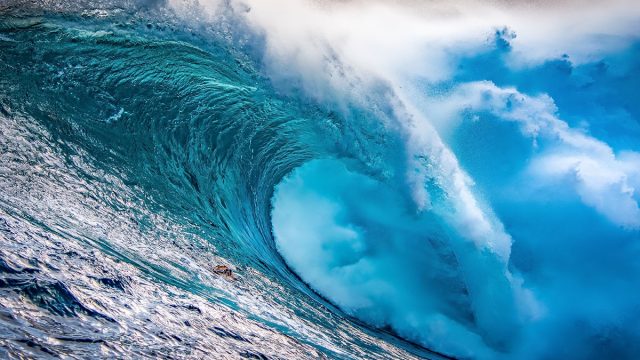
They're waves so big they can be seen from space—and NASA just released satellite imagery of this lesser-known natural phenomenon. The agency has captured the world's "tallest, longest, fastest, and heaviest waves" around the globe, and even if you're not a surfer, it's an interesting look at how our planet works. Read on to find out more.
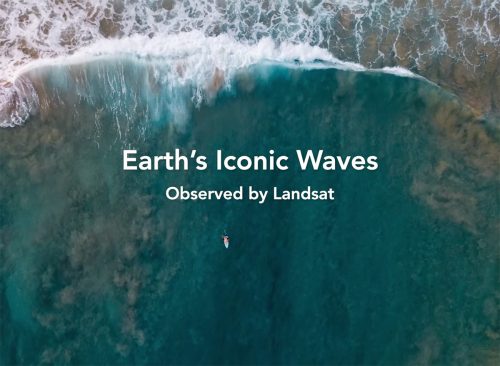
NASA revealed the satellite-taken images in a video. They record Earth's tallest waves crashing into the coast of Portugal and the fastest wave racing into Hawaii. The world's tallest and longest waves were also recorded—in Tahiti and Peru, respectively. Keep reading to learn more and see the video.
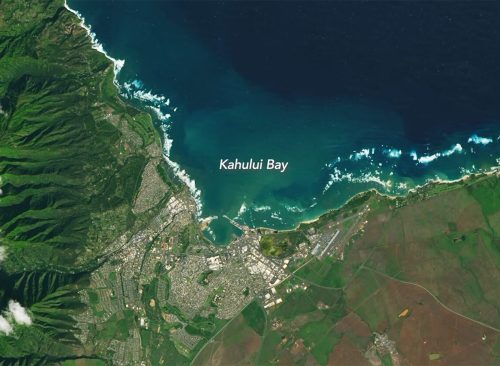
"There are some places where these waves are so magnificent, they can be seen from space," the video's narrator says. "With the broad perspective of satellites, we can see how these iconic waves develop into the world's tallest, longest, fastest, and heaviest." In Hawaii, for example, summer storms create extremely fast waves known as "freight trains" off the coast of Maui. This is caused by the "dramatic transition of the seafloor from deep water to shallow."
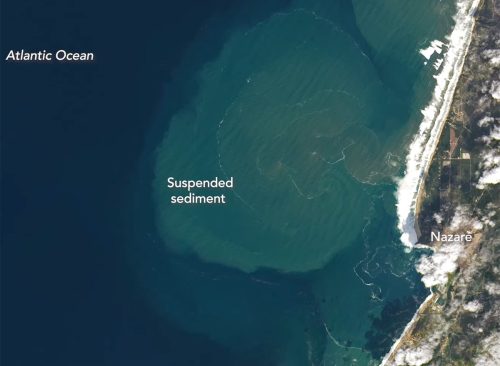
In Portugal, "waves are magnified and focused by a deep underwater canyon that comes to an end at Nazaré Bay," the video's narrator says. The waves also can get their punch from far-away storms. A Portuguese surfer reportedly rode a wave that was more than 100 feet tall.
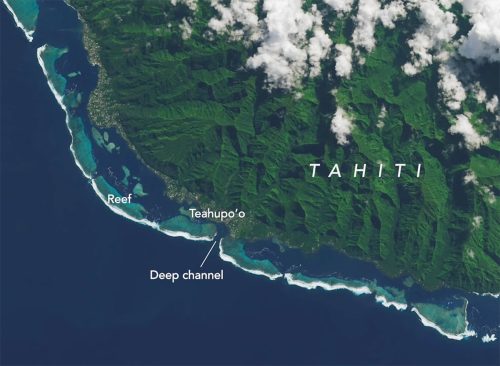
Tahiti is known as a remote escape, and its distance from other land creates some terrific waves. "The swells from storms thousands of miles away often travel unimpeded across the South Pacific toward the southern coast," the narrator says in the video. "These southwesterly swells carry energy across the deep, open ocean until crashing into the very shallow reef off Teahupo'o."
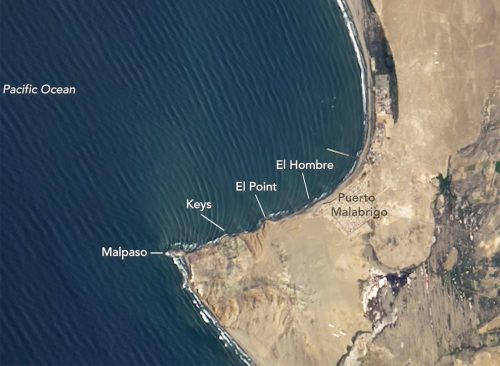
According to NASA, in Peru, the long waves at Chicama are influenced by the shape of the land. "Waves arriving from the open Pacific roll nearly parallel to this part of Peru's coastline," the video's narrator said. "They start to roll up at a cape that juts into the Pacific. Then they progressively break at a series of four points along the shoreline." When the conditions are right, surfers can ride the waves at Chicama for minutes at a time. "All of these iconic waves are shaped by the unique features of our oceans and coasts," the agency notes. "There are many other coasts with waves revered by surfers. Given the vastness of Earth, there are probably a few more to be discovered."














